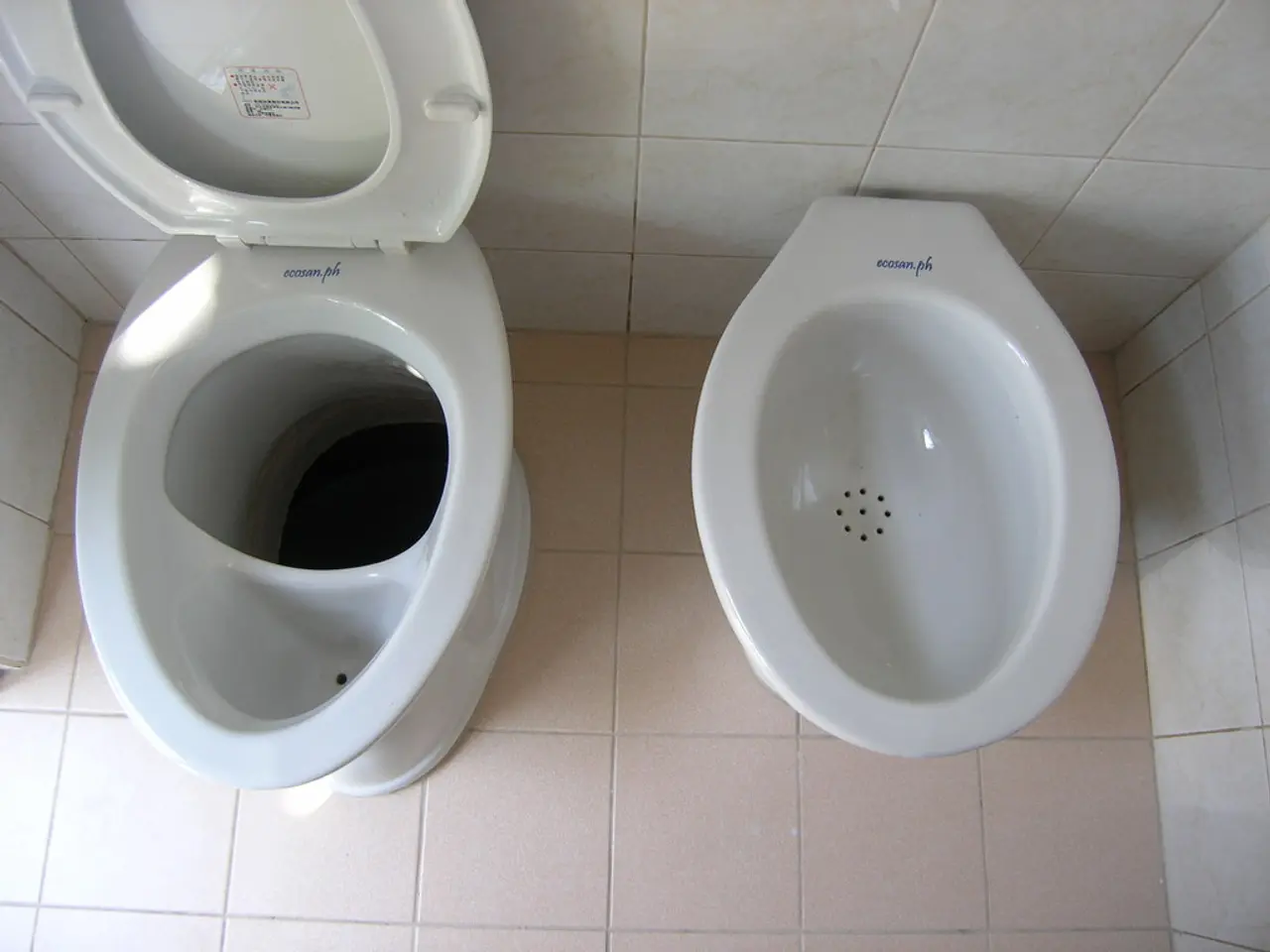Emphysematous Bladder Infection: Symptoms, Treatments, and Further Details
Emphysematous Cystitis: A Rare but Potentially Life-Threatening Urinary Tract Infection
Emphysematous cystitis (EC) is a rare type of urinary tract infection (UTI) that can pose serious health risks if left untreated. This condition, which is characterised by a buildup of gas in and around the bladder wall, affects a higher number of individuals over the age of 60 years [1].
The most common risk factor for EC is diabetes mellitus, with more than half of individuals with EC also having diabetes [1]. Other risk factors include a weakened immune system, structural or functional abnormalities of the urinary tract, and having an indwelling urethral catheter [1]. Additionally, individuals with a chronic urinary tract infection are at a higher risk of developing EC [1].
Diabetes mellitus poses a significant risk because high glucose levels can promote gas-forming bacterial infections in the bladder wall [2]. Immunosuppression, which lowers the body's ability to fight infections, and structural or functional urinary tract abnormalities (such as obstruction, catheterization, or neurogenic bladder) also contribute to the risk of EC [2].
Early diagnosis of EC is essential for timely treatment. However, EC is frequently undiagnosed due to nonspecific signs and symptoms [1]. Doctors diagnose close to 80% of EC cases using X-rays [1]. Imaging tests, such as ultrasounds, X-rays, and CT scans, help doctors rule out other possible causes of abdominal pain and look for the presence of air in the urinary tract and around the bladder [1].
Treatment for EC usually lasts 4 weeks, but the duration depends on the infection severity, the person's medical history, and any complications [1]. Doctors treat EC with antibiotics, typically starting with broad-spectrum antibiotics and prescribing specific antibiotics once the lab results confirm the type of pathogen [1].
Untreated EC can lead to a life-threatening kidney infection called emphysematous pyelonephritis, increasing a person's risk of septic shock, bladder rupture, and death [1]. Therefore, it is crucial to seek medical attention promptly if experiencing symptoms such as frequent urination, pain or burning during urination, fever, or abdominal pain [1].
The primary causative organisms commonly implicated in EC include Escherichia coli and other gas-forming bacteria [2]. A urinalysis can help doctors look for the presence of hematuria (blood in the urine), pyuria (white blood cells or pus in the urine), bacteriuria (bacteria in the urine), and glucose (sugar in the urine) [1].
In conclusion, elderly diabetic patients with compromised immune systems or pre-existing urinary tract abnormalities are at heightened risk of developing emphysematous cystitis. It is essential to be aware of the signs and symptoms of this condition and seek medical attention promptly to prevent serious adverse outcomes.
References: [1] NIDDK. (2021). Emphysematous cystitis. National Institute of Diabetes and Digestive and Kidney Diseases. Retrieved from https://www.niddk.nih.gov/health-information/urologic-diseases/emphysematous-cystitis [2] UpToDate. (2021). Emphysematous cystitis. UpToDate. Retrieved from https://www.uptodate.com/contents/emphysematous-cystitis
- Science has shed light on the complexities of neurogenic bladder, a medical condition that can contribute to the risk of emphysematous cystitis.
- Promoting workplace-wellness through educating employees about chronic diseases like emphysematous cystitis can help prevent serious health complications.
- A balanced approach to health-and-wellness that includes fitness-and-exercise, mental-health care, and proper skin-care can help individuals with neurogenic bladder maintain overall well-being.
- Men's health initiatives should emphasize the significance of early detection and treatment for neurological disorders and rare urinary tract infections like emphysematous cystitis.
- Parenting resources should also cover children's mental health, sexual health, and medications like medicare-covered therapies-and-treatments for managing chronic diseases.
- The misconception that CBD is a cure-all for all medical-conditions, including emphysematous cystitis, persists despite limited scientific evidence supporting its efficacy.
- Womens-health clinics must prioritize awareness and early detection of emphysematous cystitis, especially among individuals with a history of pelvic surgery or urinary tract infections.
- Continuous research and initiatives aimed at understanding and addressing emphysematous cystitis and other rare urinary tract infections are crucial to advancing the field of urology and improving patient outcomes.




